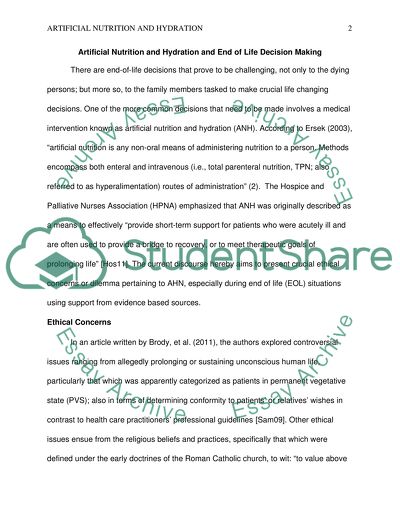Cite this document
(“Artificial nutrition and hydration and end of life decision making Term Paper”, n.d.)
Artificial nutrition and hydration and end of life decision making Term Paper. Retrieved from https://studentshare.org/nursing/1487300-artificial-nutrition-and-hydration-and-end-of-life
Artificial nutrition and hydration and end of life decision making Term Paper. Retrieved from https://studentshare.org/nursing/1487300-artificial-nutrition-and-hydration-and-end-of-life
(Artificial Nutrition and Hydration and End of Life Decision Making Term Paper)
Artificial Nutrition and Hydration and End of Life Decision Making Term Paper. https://studentshare.org/nursing/1487300-artificial-nutrition-and-hydration-and-end-of-life.
Artificial Nutrition and Hydration and End of Life Decision Making Term Paper. https://studentshare.org/nursing/1487300-artificial-nutrition-and-hydration-and-end-of-life.
“Artificial Nutrition and Hydration and End of Life Decision Making Term Paper”, n.d. https://studentshare.org/nursing/1487300-artificial-nutrition-and-hydration-and-end-of-life.


